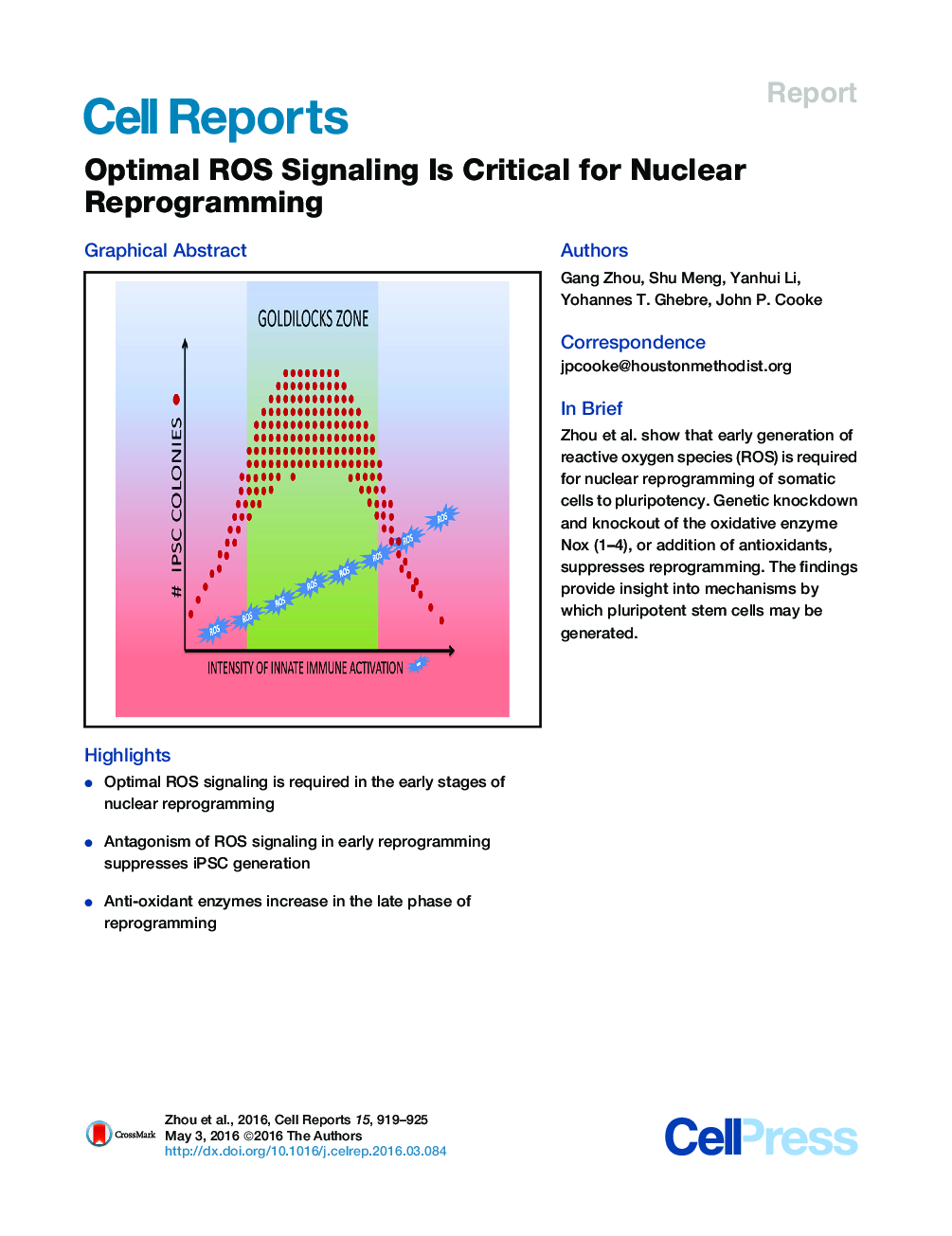| Article ID | Journal | Published Year | Pages | File Type |
|---|---|---|---|---|
| 2039779 | Cell Reports | 2016 | 7 Pages |
•Optimal ROS signaling is required in the early stages of nuclear reprogramming•Antagonism of ROS signaling in early reprogramming suppresses iPSC generation•Anti-oxidant enzymes increase in the late phase of reprogramming
SummaryEfficient nuclear reprogramming of somatic cells to pluripotency requires activation of innate immunity. Because innate immune activation triggers reactive oxygen species (ROS) signaling, we sought to determine whether there was a role of ROS signaling in nuclear reprogramming. We examined ROS production during the reprogramming of doxycycline (dox)-inducible mouse embryonic fibroblasts (MEFs) carrying the Yamanaka factors (Oct4, Sox2, Klf4, and c-Myc [OSKM]) into induced pluripotent stem cells (iPSCs). ROS generation was substantially increased with the onset of reprogramming. Depletion of ROS via antioxidants or Nox inhibitors substantially decreased reprogramming efficiency. Similarly, both knockdown and knockout of p22phox—a critical subunit of the Nox (1–4) complex—decreased reprogramming efficiency. However, excessive ROS generation using genetic and pharmacological approaches also impaired reprogramming. Overall, our data indicate that ROS signaling is activated early with nuclear reprogramming, and optimal levels of ROS signaling are essential to induce pluripotency.
Graphical AbstractFigure optionsDownload full-size imageDownload as PowerPoint slide
